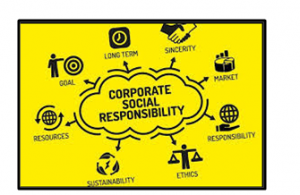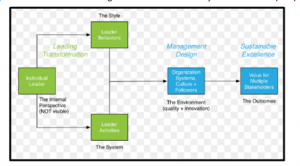STRATEGIC MANAGEMENT FOR COMPETITIVE ADVANTAGE 2020
(Assignment C)
1. Critical Evaluation of Organisational Sustainability
Organizational sustainability is associated with the presence and survival of an organization in the marketplace by balancing the performance with the global economy.
In order to survive in the economy, organizations must adopt the most innovative and creative marketing strategy and corporate strategy. According to the view of Zeng and Beelaerts van Blokland, (2018), implementation of innovative marketing strategy in the organizational structure can help in the process of ensuring the functional area in an effective way.
On the other hand, the effective corporate strategy is necessary to ensure the relationship in between the internal and external stakeholder of the organization for the development and growth of the corporate structure.
The following are the three major principles of organizational sustainability that help in the survival of Falcon Motors:
Economic sustainability: Economic sustainability is associated with the process practices of long-term plan economic development and growth of the organization.
As per the view of Luftman et al, (2017), the major components of economic sustainability of an organisation are its profit, long term business success, and expansion of business areas, increase of stock values and rise of brand equity.
Rise of annual profit by improving the functional areas and production areas of the organisation contributed in ensuring economic sustainability for future development and growth in a sustainable way.
Annual profit of Falcon Motors helps to manage its operational functions and manufacturing process including employees and sales.
According to the view of Bouranta et al, (2017), long term business success, the process of an organization influences economic sustainability from different perspectives.
Long term business success influences business experience and marketing ability of an organisation and has to select the best strategy for organisational sustainability.
In addition, long term business success of a specific corporate organisation helps to avail the opportunities of competitive advantage.
According to a view of Gu and Huo, (2017), expansion of business areas, increasing stock values and rise of brand equity are fundamental components of organisational economic sustainability.
Expansion of business areas helps Falcon Motors to enter a new marketplace in an effective way.
As argued by Bevilacqua et al, (2017), the rising stock value helps this in marketing areas and assets of the organisation along with its investors in a significant manner.
However, the brand equity of different corporate organisations helps to manage its customers and other external stakeholders in an authentic way and enhances the corporate sustainability.
Social sustainability: The social sustainability of the corporate organisation is associated with the process of managing different positive and negative components of organisation in a sustainable way.
The major components of social sustainability are the performance of the employee, organisational behaviour, and ethical consideration of the organisation, employee relationship of the Falcon Motors, corporate structure and team management or decision making process.
According to the view of Kumar et al, (2016), performance of the employees within the functional areas is the influence organisation structure and leadership style.
Corporate organisations must adopt different employee management strategies and approaches in order to ensure its social sustainability in an effective manner.
According to the view of Martini et al, (2016), organisational behaviour also influences social sustainability from different aspects.
In addition, ethical consideration of an organisation helps to manage social responsibility and behaviour of different internal and external stakeholders and contributes to the process of social sustainability.
On other hand, employee’s relationships within the internal structure of the organisation and with the administrative department can help evaluate corporate social sustainability by analysing the social issues.
As per the view of Martí-Ballester, (2017), corporate structure of the organisation, including different hierarchy levels and functional department affects its social sustainability and social development.
Environmental sustainability: Environmental sustainability is associated with the strategies of protecting natural environments of the organization in order to ensure its organizational sustainability.
However, different strategies implemented by a company in order to manage its different team and manage decision making processes can help to evaluate its environmental sustainability and survival of the Falcon Motors in different markets.
2. Corporate Social responsibilities
Corporate social responsibilities of different organisations are associated with practices of different ethical oriented works and voluntary works towards the sustainable development and social development process.
According to the view of Dermol and Širca, (2018), Corporate Social Responsibility is necessary to enhance the self-regulating business model of an organisation in order to improve social accountability.
The following outer measure corporate social responsibilities included in the functional areas of organisation Falcon motors:

Figure 1: Aspects of corporate social responsibility
(Source: Mohamad et al, 2017)
Environmental Commitments: Falcon Motors is actively participating in the environmental commitments in order to reduce and manage environmental degradation.
The major components of environmental commitments are reduction of soil and water pollution, using eco-friendly procedures, building of low carbon emission technology and development of energy saving motors.
According to the view of Mohamad et al, (2017), education of soil and water pollution is necessary to conserve the ecosystem and surrounding environment to ensure the future development in a significant manner.
However, the implementation and development of eco-friendly procedures in the manufacturing process can help the organization to reduce the level of global warming.
On the other hand, the reduction of carbon emission by identifying innovative technology can help to manage the major issues of climate change.
According to the view of Mohamad et al, (2017), development of energy saving motors by the different manufacturing and automobiles can greatly contribute to the process of participating in Corporate Social Responsibility.
Charitable Trust: Most of the organization participated and developed charitable trust in order to contribute in the process of fighting with different natural or artificial disasters, poverty, education and health and wellness.
Falcon Motors have a charitable trust that supports the different social works by providing funds and economic support.
This process helps the organization to participate actively in their Corporate Social Responsibility process effectively.
3. Financial performance of a major Falcon Motors
Financial performance of the Falcon Motors is associated with the procedures and strategies of subjective measures based on the process of using assets and making profits by performing in the functional areas.
According to the view of von Bonsdorff et al, (2018), the financial performance of an organization depends on the stability of the economy, marketing strategy, and product launching process, suppliers, targeted customers and investments.
Responsible decision making
The decision making process of the organization Falcon Motors is based on the ethical consideration and business objectives of the company.
The company used the process of evaluation of the goal, marketing analysis and identification of the associated problems and risks in its decision making process.
According to the view of Semuel et al, (2017), analysis of the markets areas and major issues a significant component of the responsible decision making process.
Concept of triple bottom line: The concept of triple bottom line can be explained as one of the major accounting frameworks that help different organisations to identify and focus on its environmental and social issues in order to improve their profits.
The organisation Falcon Motors has adopted the concept of triple bottom line framework in order to evaluate and enhance their business performance by adopting perspectives for creating more business values.
According to the view of Pickering (2017), triple bottom lines help different organisations help to manage their cash flow and transaction of finance within the organisation and the marketplace.
Expectation in terms of CSR: The major expectation of Falcon Motor in terms of corporate social responsibility is the development of brand equity and brand image in different marketing ideas due to their contribution to CSR.
Promoting different environmental friendly products can enhance the functional areas and help to develop sustainable business approaches in order to survive in the competitive market.
According to the view of Pickering (2017), the expectation of rising brand equity and brand image helps to encourage the organisation to contribute actively and different Corporate Social Responsibilities.
Organizational sustainability agenda: Organisational sustainability agenda is associated with the strategies implemented in order to ensure the business survival in the functional areas.
Unique style of different car designs helps the organisation to survive in the corporate world by implementing product differences strategy (D’Innocenzo et al, 2016).
In addition, the use of innovative operating system ideas helps them to give tough competition to their competitors and ensure corporate sustainability.
However effective designs management system and sustainable excellence of the company improve its manufacturing process and marketing procedures and ensure Organisational sustainability from different perspectives.

Figure 2: Organizational sustainability agenda
(Source: Mudannayake et al, 2019)
Manageable numbers of financial ratio: Financial Ratio is associated with a relative magnitude of different numerical values within the financial statement of the organisation.
The consideration of different standards for financial ratio helps the organisation Falcon Motors to manage organisational performance and organisation sustainability effectively.
However, the manageable numbers of financial ratios of the organization are the average cost, estimated cost, manufacturing cost, cost of raw materials and selling process (Falconpumps, 2020).
| Numbers | Manageable numbers of finance ratios |
| 1 | Profitability or return on investment |
| 2 | Liquidity |
| 3 | Leverage |
| 4 | Operations |
Table 1: Manageable numbers of finance ratios
(Source: Falconpumps, 2020)
Bevilacqua, M., Ciarapica, F.E. and De Sanctis, I., 2017. Lean practices implementation and their relationships with operational responsiveness and company performance: an Italian study. International Journal of Production Research, 55(3), pp.769-794.
Boone, S., Andries, P. and Clarysse, B., 2019. Does team entrepreneurial passion matter for relationship conflict and team performance? On the importance of fit between passion focus and venture development stage. Journal of Business Venturing, p.105984.
Bouranta, N., Psomas, E.L. and Pantouvakis, A., 2017. Identifying the critical determinants of TQM and their impact on company performance. The TQM Journal.
D’Innocenzo, L., Mathieu, J.E. and Kukenberger, M.R., 2016. A meta-analysis of different forms of shared leadership–team performance relations. Journal of Management, 42(7), pp.1964-1991.
De Jong, B.A., Dirks, K.T. and Gillespie, N., 2016. Trust and team performance: A meta-analysis of main effects, moderators, and covariates. Journal of Applied Psychology, 101(8), p.1134.
Dermol, V. and Širca, N.T., 2018. Communication, company mission, organizational values, and company performance. Procedia-Social and Behavioral Sciences, 238, pp.542-551.
Falconpumps, 2020, About Us, Available at: https://www.falconpumps.in/index.php [10th April, 2020]
Gu, M. and Huo, B., 2017. The impact of supply chain resilience on company performance: a dynamic capability perspective. In Academy of Management Proceedings (Vol. 2017, No. 1, p. 16272). Briarcliff Manor, NY 10510: Academy of Management.
Helmreich, R.L. and Schaefer, H.G., 2018. Team performance in the operating room. In Human error in medicine (pp. 225-254). CRC Press.
Kumar, K., Boesso, G. and Michelon, G., 2016. How do strengths and weaknesses in corporate social performance across different stakeholder domains affect company performance?. Business Strategy and the Environment, 25(4), pp.277-292.
Luftman, J., Lyytinen, K. and Zvi, T.B., 2017. Enhancing the measurement of information technology (IT) business alignment and its influence on company performance. Journal of Information Technology, 32(1), pp.26-46.
Lyubovnikova, J., Legood, A., Turner, N. and Mamakouka, A., 2017. How authentic leadership influences team performance: The mediating role of team reflexivity. Journal of business Ethics, 141(1), pp.59-70.
Martí-Ballester, C.P., 2017. Sustainable energy systems and company performance: Does the implementation of sustainable energy systems improve companies’ financial performance?. Journal of cleaner production, 162, pp.S35-S50.
Martini, S.B., Corvino, A., Doni, F. and Rigolini, A., 2016. Relational capital disclosure, corporate reporting and company performance. Journal of Intellectual Capital.
Mohamad, A., Zainuddin, Y., Alam, N. and Kendall, G., 2017. Does decentralized decision making increase company performance through its Information Technology infrastructure investment?. International Journal of Accounting Information Systems, 27, pp.1-15.
Mudannayake, B., Ramudu, R.B. and Bathula, H., 2019. Team conflict and team performance: The moderating impact of team temporal leadership. In 33rd Australian and New Zealand Academy of Management Conference (pp. 1-23). Australian and New Zealand Academy of Management.
Palandeng, I.D., Kindangen, P., Timbel, A. and Massie, J., 2018. Influence analysis of supply chain management and supply chain flexibility to competitive advantage and impact on company performance of fish processing in Bitung city. Journal of Research in Business, Economics and Management, 10(1), pp.1783-1802.
Pickering, M.E., 2017. Post‐acquisition integration processes in publicly owned professional service companies: Senior professional behaviour and company performance. Journal of Organizational Behavior, 38(7), pp.950-976.
Preenen, P.T., Oeij, P.R., Dhondt, S., Kraan, K.O. and Jansen, E., 2016. Why job autonomy matters for young companies’ performance: company maturity as a moderator between job autonomy and company performance. World Review of Entrepreneurship, Management and Sustainable Development, 12(1), pp.74-100.
Semuel, H., Siagian, H. and Octavia, S., 2017. The effect of leadership and innovation on differentiation strategy and company performance. Procedia-Social and Behavioral Sciences, 237, pp.1152-1159.
Tomic, I., Tesic, Z., Kuzmanovic, B. and Tomic, M., 2018. An empirical study of employee loyalty, service quality, cost reduction and company performance. Economic research-Ekonomska istraživanja, 31(1), pp.827-846.
von Bonsdorff, M.E., Zhou, L., Wang, M., Vanhala, S., von Bonsdorff, M.B. and Rantanen, T., 2018. Employee age and company performance: An integrated model of aging and human resource management practices. Journal of Management, 44(8), pp.3124-3150.
Zeng, Q. and Beelaerts van Blokland, W.W.A., 2018. Exploring company performance measurement for truck manufacturers. Journal for the Advancement of Performance Information Value, 10(1), pp.1-23.


